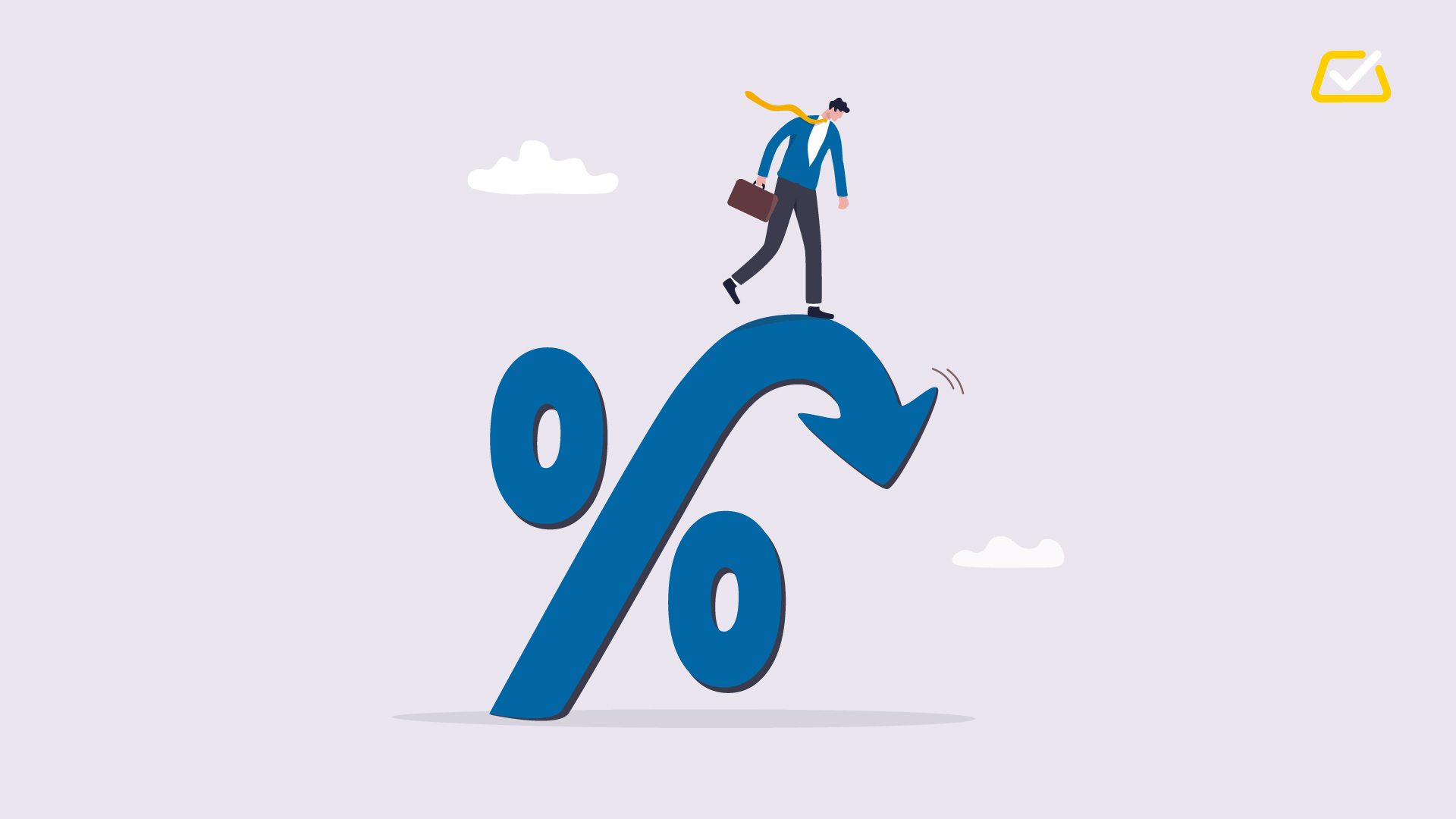Muslim Money Experts
Latest

Have you ever thought, “I know zakat is important, but can I just give it directly to someone struggling?” Maybe you see a friend facing financial difficulties or come across a heartbreaking story online, and you wonder if you could simply hand your zakat to them. After all, isn’t giving directly more personal and impactful?

Discover why market volatility is a natural part of investing and learn strategies to navigate short-term declines with a long-term perspective.

Setiap kali masuk tahun baru — atau setiap hari Isnin pun — kita mesti pasang niat dan tetapkan azam. Sama ada nak turunkan berat badan, simpan duit, mula side hustle, atau habiskan buku yang dah lama tertangguh, semangat memang berkobar-kobar. Tapi kebanyakannya tak kekal lama pun.

Every new year — or even every Monday — we set goals with the best intentions. Whether it’s to lose weight, save money, start a side hustle, or finally finish that book, we’re filled with optimism. But most of us don’t make it past the first few weeks. In fact, research shows that 92% of people fail to achieve their goals, with 23% giving up within the first week alone.

Global markets face volatility in February 2025 amid trade tensions, tariffs, and economic shifts. The MSCI World Islamic Index drops, while gold reaches record highs. Economic resilience in the U.S. contrasts with challenges in the UK, Eurozone, and China, with central banks adjusting policies to stabilize economies.

Apabila kita mendengar perkataan rezeki, kebanyakan daripada kita akan terfikir tentang wang. Walaupun wang itu penting, rezeki datang dalam pelbagai bentuk. Ia boleh berupa majikan yang memberi inspirasi, kawan yang boleh dipercayai, ibu bapa yang menyokong, dan banyak lagi.

Markets rebounded in January 2025, with equities, bonds, and gold showing strong gains despite December’s correction. U.S. GDP grew 2.8%, while inflation and tech sector volatility, driven by China’s AI startup DeepSeek, added uncertainty. The UK and Eurozone faced economic struggles, and China saw mixed results with weak manufacturing but solid GDP growth. Central bank policies, inflation, and trade risks will shape global markets in 2025, highlighting the need for a diversified investment strategy.

Masih ramai antara kita yang percaya bahawa kita boleh menyusun strategi dan meramalkan pasaran (juga dikenali sebagai “timing the market”), dengan berdagang secara aktif — beli pada harga rendah, jual pada harga tinggi — untuk memaksimumkan pulangan. Tetapi, jujurlah, berapa kerap ramalan kita tentang cuaca, trafik, atau pasaran saham benar-benar menjadi kenyataan?

There are still many of us believe we can strategise and predict the market (also known as “timing the market”), to trade actively — buy low, sell high — so as to maximize returns. But let’s face it, how often do our predictions about the weather, traffic, or even the stock market actually hold true?

December marked the end of a year defined by strong performance across major asset classes, with equities, bonds, and gold all recording positive returns. Despite a pullback in the final month, markets benefited throughout the year from easing monetary policies and robust corporate earnings.

Riba, atau faedah, adalah amalan yang membawa kesan ekonomi, rohani, dan moral. Apa yang dianggap sebagai 'pertumbuhan' kini menimbulkan persoalan, adakah 'pertumbuhan' itu bermaksud untuk mengeksploitasi, meningkatkan ketidaksamaan, dan mencipta ketidakadilan? Oleh sebab itu, Islam melarangnya.

November markets rose as the MSCI World Islamic Index gained 4.0% and the Dow Jones Sukuk Index edged up 0.3%. US policy clarity post-elections, a stronger dollar, and shifting central bank actions shaped global trends, while challenges persisted in the UK, Eurozone, and China.

Kepentingan pelaburan tidak boleh dinafikan, dan ia telah berkembang pesat dalam jangka masa yang singkat,seiring dengan pertumbuhan industri kewangan. Terdapat banyak panduan yang diterbit untuk menerangkan cara untuk melabur, jenis-jenis pelaburan dengan cara untuk mengaksesnya, serta peraturan-peraturan yang berbeza dalam pelaburan.

Discover how to grow your wealth and achieve your financial goals with Wahed. Learn key investing insights and strategies that align with your financial objectives and Islamic principles.

Bayaran faedah bukan sahaja membebankan keluarga miskin dan kelas pertengahan, malah ia turut menghancurkan syarikat dan negara.

Interest repayments don’t just weigh heavily on poor and middle-class families, they also crush corporations and nations.

Discover the three key types of investment accounts—Individual Investment Accounts, IRAs (Roth & Traditional), and 401(k)s—and learn how they fit into your financial goals with insights on halal investing principles.

Kita semua telah menyedarinya. Kos sara hidup di Malaysia semakin meningkat.

We’ve all noticed it. The cost of living in Malaysia is rising.

Markets continued to gain ground in September, extending gains from previous months, driven by declining US Treasury yields.

Sepanjang sejarah, emas telah melambangkan kekayaan dan kuasa disebabkan oleh kelangkaan dan keindahannya. Emas juga disebut dalam Al-Quran, yang menekankan kepentingannya dalam Islam (Surah Al-Imran 3:14).

Throughout history, gold has represented wealth and power due to its rarity and beauty. It is also mentioned in the Quran, highlighting its significance in Islam (Surah Al-Imran 3:14).

Pasaran kewangan tidak selalunya stabil — ada kalanya ia naik, dan ada masanya ia turun.

Considering rolling over your 401(k) to a Halal IRA? Learn why 401(k) investments may conflict with Islamic principles and how to transition to a Shariah-compliant IRA.

Discover what's in your 401k, the benefits and drawbacks of investing with a 401k, and how to ensure your 401k remains halal.

Berabad-abad lamanya, emas telah memikat hati dan minda orang di seluruh dunia. Kelangkaannya, kecantikannya, dan nilainya yang kekal menjadikannya aset yang dicari-cari untuk sebab emosi dan rasional. Tetapi apakah yang membuatkan emas begitu mempesonakan sebagai pelaburan, dan mengapa ia telah bertahan selama ini sebagai aset yang berharga sepanjang zaman?

For centuries, gold has captivated the hearts and minds of people around the world. Its rarity, beauty, and enduring value have made it a sought-after asset for both emotional and rational reasons. But what is it about gold that makes it so alluring as an investment, and why has it stood the test of time as a valuable asset?

Learn how to navigate the financial eco-system in the US as a Muslim American in this comprehensive guide to halal investing.

Discover halal IRA options, their pros & cons, and how Wahed facilitates a riba-free retirement aligned with your faith.

Retirement guide for Muslims in the U.S. Learn about halal investment options and how Wahed offers riba-free investing for retirement.

Explore the power of compound growth in halal retirement savings. Learn how shariah-compliant options like halal IRAs can help offset inflation and make your retirement dreams attainable, regardless of the amount you have in your savings account today.

After a bullish start to the year, most markets in April 2024 experienced a correction. The MSCI World Islamic Index declined by -3.88%, reversing its earlier upward trend. Similarly, the Dow Jones Sukuk Index saw a drop of -1.59%, due to rising inflation expectations and an uptick in U.S. Treasury yields.

Global markets continued their February 2024 surge following January after a lull.

Wahed explores the exciting world of startups and makes the case for why Muslims shouldn't neglect this asset class!







.gif)







.jpg)









.jpg)







.jpg)





































